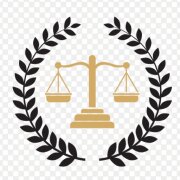Best Whistleblower & Qui Tam Lawyers in Iran
Share your needs with us, get contacted by law firms.
Free. Takes 2 min.
Or refine your search by selecting a city:
List of the best lawyers in Iran
About Whistleblower & Qui Tam Law in Iran
Whistleblower & Qui Tam Law in Iran pertains to individuals who expose misconduct or illegal activities within an organization. Whistleblowers are protected by law from retaliation for reporting such activities. Qui Tam refers to a provision that allows private individuals to file a lawsuit on behalf of the government against those committing fraud against the government.
Why You May Need a Lawyer
You may need a lawyer in Whistleblower & Qui Tam cases if you have witnessed illegal activities in your workplace and want to report them, if you are facing retaliation for whistleblowing, or if you are considering filing a Qui Tam lawsuit on behalf of the government.
Local Laws Overview
In Iran, whistleblowers are protected under the "Protection of Whistleblowers Act." This law prohibits retaliation against whistleblowers and provides legal recourse for those who face retaliation. Qui Tam lawsuits are not as common in Iran, but individuals may still be able to bring such cases under certain circumstances.
Frequently Asked Questions
1. Can I remain anonymous if I blow the whistle?
In Iran, whistleblowers are not guaranteed anonymity, but the law does provide protection against retaliation.
2. What kind of retaliation could I face for whistleblowing?
Retaliation can come in many forms, such as termination, demotion, harassment, or isolation in the workplace.
3. How do I report illegal activities as a whistleblower?
You can report illegal activities to the appropriate authorities within your organization or to government agencies responsible for oversight.
4. What is the statute of limitations for Qui Tam lawsuits in Iran?
The statute of limitations for Qui Tam lawsuits in Iran may vary depending on the specific circumstances of the case.
5. What types of fraud can be reported under Qui Tam laws in Iran?
Qui Tam lawsuits in Iran typically involve cases of fraud against the government, such as healthcare fraud, procurement fraud, or financial fraud.
6. Can I receive a reward for reporting fraud in a Qui Tam lawsuit?
In some cases, individuals who file Qui Tam lawsuits on behalf of the government may be eligible to receive a percentage of any recovered funds.
7. How do I find a lawyer experienced in Whistleblower & Qui Tam cases in Iran?
You can research law firms or legal organizations in Iran that specialize in whistleblowing and Qui Tam cases, or seek recommendations from trusted sources.
8. What evidence do I need to support a Whistleblower or Qui Tam claim?
Evidence such as documents, emails, witness testimony, and other proof of the misconduct or fraud alleged in the claim can help support your case.
9. What protections are available for whistleblowers under Iranian law?
Iranian law provides protections against retaliation, including legal recourse for wrongful termination or other forms of retaliation.
10. Can I file a Whistleblower or Qui Tam claim anonymously?
While anonymity is not guaranteed under Iranian law, whistleblowers are protected against retaliation for reporting illegal activities.
Additional Resources
For more information on Whistleblower & Qui Tam laws in Iran, you can contact the Iranian Bar Association or government agencies responsible for oversight and enforcement of such laws.
Next Steps
If you believe you have witnessed illegal activities or fraud and are considering blowing the whistle or filing a Qui Tam lawsuit, it is advisable to consult with a lawyer experienced in Whistleblower & Qui Tam cases in Iran. They can provide guidance on the best course of action and help protect your rights throughout the process.
Lawzana helps you find the best lawyers and law firms in Iran through a curated and pre-screened list of qualified legal professionals. Our platform offers rankings and detailed profiles of attorneys and law firms, allowing you to compare based on practice areas, including Whistleblower & Qui Tam, experience, and client feedback.
Each profile includes a description of the firm's areas of practice, client reviews, team members and partners, year of establishment, spoken languages, office locations, contact information, social media presence, and any published articles or resources. Most firms on our platform speak English and are experienced in both local and international legal matters.
Get a quote from top-rated law firms in Iran — quickly, securely, and without unnecessary hassle.
Disclaimer:
The information provided on this page is for general informational purposes only and does not constitute legal advice. While we strive to ensure the accuracy and relevance of the content, legal information may change over time, and interpretations of the law can vary. You should always consult with a qualified legal professional for advice specific to your situation.
We disclaim all liability for actions taken or not taken based on the content of this page. If you believe any information is incorrect or outdated, please contact us, and we will review and update it where appropriate.
Browse whistleblower & qui tam law firms by city in Iran
Refine your search by selecting a city.















